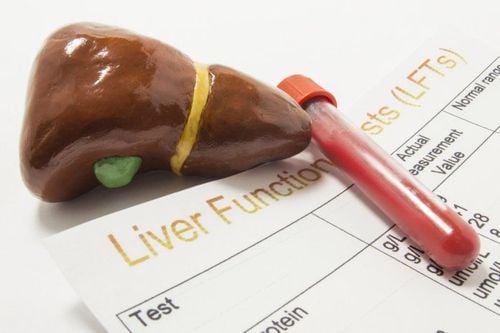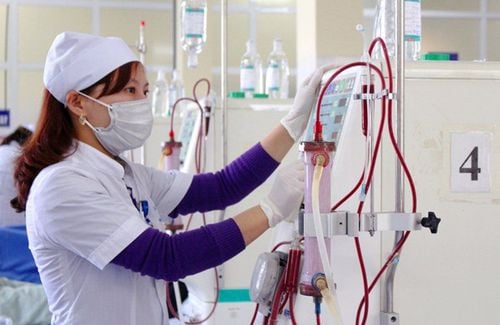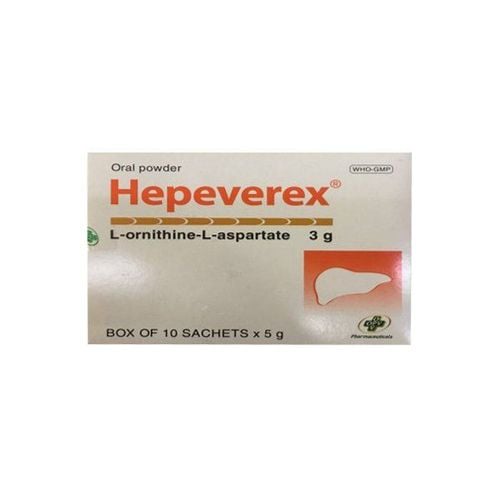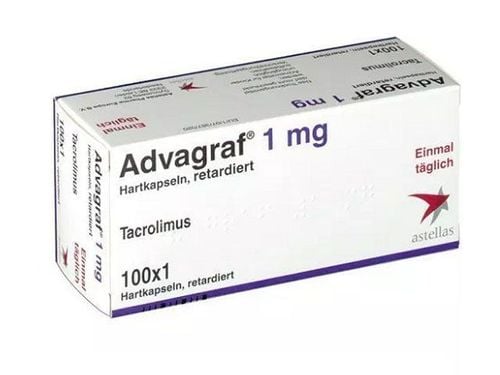This is an automatically translated article.
The article was written by MSc Vu Huu Thang - Emergency Medicine Doctor, Emergency Department - Vinmec Ha Long International Hospital.
Acute liver failure is a condition of massive damage to liver cells due to many different causes leading to an acute clinical picture with manifestations: jaundice, coagulopathy, hepatic encephalopathy, multiple failure organ... in a person with previously normal liver function. High mortality rate 50 - 90% without proper treatment or liver transplant
1. Causes of acute liver failure
1.1 Due to microorganisms
Due to hepatitis A, B, C, E viruses (hepatitis B virus is the most common cause in Vietnam). Other viruses: cytomegalovirus, herpes, epstein barr, chickenpox . Bacteria: seen in patients with severe infection and septic shock, the rate of liver damage and acute liver failure is 20-25%. Parasites: malaria, liver fluke, worms.
1.2 Due to poisoning
Drugs: paracetamol (most common), isoniazid, rifampicin, non-steroidal anti-inflammatory drugs, sulphonamides, phenytoin, tetracycline, allopurinol, ketoconazole... oriental medicine (drug preservative) Mold: typically amianita phalloides

1.3. Other causes
Acute fatty liver syndrome in pregnant women. Large vessel occlusion in the liver. Reye's syndrome.
2. Symptoms
2.1. clinical
Patients with acute liver failure often have a healthy history or no previous history of severe disease. The patient started with symptoms: fainting, nausea, loss of appetite, then typical clinical manifestations are:
Yellowing of the skin and mucous membranes, dark urine. Symptoms due to coagulation disorders: bleeding under the skin, mucous membranes, upper and lower gastrointestinal bleeding, possibly brain hemorrhage. - Hepatic encephalopathy manifests in many levels:
+ Grade I: changes in emotional status, decreased concentration, sleep disturbance.
+ Grade II: lethargy, gloomy, abnormal behavior, inappropriate behavior, disorientation, still responsive to speech.
+ Grade III: somnolence, unresponsiveness to speech, clear gloom, hyperreflexia.
+ Grade IV: coma, showing brain loss, may still respond to painful stimuli.
- Acute renal failure is a complication that occurs after acute liver failure.
- Infections: common pneumonia, urinary tract infections, sepsis.
- The patient can die in the context of multi-organ failure.
2.2. Subclinical
There is no specific test.
- Increased bilirubin: if increased > 250 mmol/l, the patient is very sick.
+ AST and ALT are elevated when there is severe hepatocellular damage.
+ INR, NH3, PT, APTT, factors V, VII, VIII and fibrinogen (INR > 1.5 is the defining factor of severe disease)
+ Hypoglycemia, hyponatremia, hypomagnesemia, respiratory alkalosis , metabolic acidosis.
+ Increases blood urea and creatinine.
3. Diagnosis
3.1. Implementing the quadrants
Diagnosis of clinical acute liver failure requires a full combination of symptoms of acute liver failure syndrome, hepatic encephalopathy syndrome: fatigue, jaundice, hemorrhage, neurological signs... biochemical tests: increased bilirubin, NH3, AST, ALT, prolonged prothrombin time > 1.5
3.2. Differential diagnosis
Poisoning with tranquilizers that induce sleep. Hypoglycemia . Coma increases osmotic pressure. Stroke . Other neurological diseases. Exacerbation in a patient with chronic liver disease (due to viral hepatitis, alcoholic cirrhosis, autoimmune hepatitis, metabolic liver disease...)
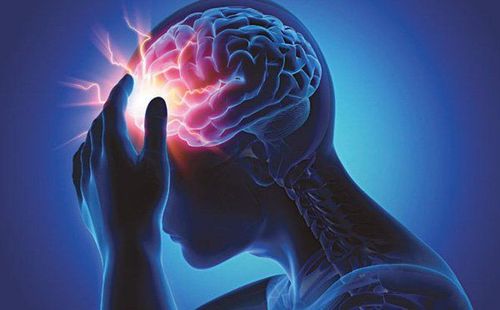
3.3. Diagnose the cause
Acute liver failure due to poisoning: Toxicology test in blood, urine, gastric juice, quantification of paracetamol in serum. Acute liver failure suspected of viral hepatitis : serological diagnosis: hepatitis A (IgM); hepatitis B (HBsAg; Anti-HBC, quantitative counting of HBV DNA).... Acute liver failure due to other causes: autoimmune disease, autoimmune disease, metabolic disorder... Imaging: Liver ultrasound identifies hepatic embolism and atrophy in fulminant viral hepatitis
3.4. Level diagnosis
Division according to Luke and Mallory: divided into 3 stages: + Pre-Million: is the stage without jaundice.
+ Intermediate stage: marked by the appearance of jaundice.
+ End stage: manifestation of hepatic encephalopathy.
Classical clinical classification: based on the time interval from the manifestation of jaundice to the appearance of hepatic encephalopathy. + Fulminant liver failure: 7 days.
+ Acute liver failure: 8 - 28 days.
+ Subacute liver failure: 5 - 12 weeks.
Hepatic encephalopathy is divided into 4 levels: very useful in prognosis, monitoring and management attitude for patients. + Grade I: excitement or depression, slurred speech, slight confusion, sleep disturbance, slight tremor.
+ Grade II: lethargy, gloomy, disorienting, shaking.
+ Grade III: lethargy, but still responsive, hyperreflexia, frequent tremors.
+ Grade IV: deep coma, no longer shaking.
4. Treatment
4.1. The principles of treatment
No specific treatment Supportive treatment for liver, organ failure. Treat complications while waiting for liver cells to recover or wait for a liver transplant.
4.2. Basic treatment
45o high head. Respect the head - neck - body axis. Monitor perception and pupil diameter. Intubate if necessary, ventilate for mild hypokalemia. Anti brain edema: mannitol 20% 0.4g/kg. Rehydration electrolytes, vasopressors if necessary. Extrarenal filtration. Prophylaxis against H2, proton pump inhibitors, gastrointestinal bleeding. Provide Glucose (G5% - G20%). Monitor blood glucose hourly. Bilan translates in and out.
4.3. Treat the cause
Paracetamol poisoning (and other acute liver failure): N-acetylcysteine 300mg/kg/20 hours Autoimmune pathology: corticosteroids. Anti-virus. Termination of pregnancy (severe acute fatty liver, Hellp syndrome ...) Treatment should be avoided: + Psychotropic drugs Benzodiazepines, Neuroleptique aggravate coma, not monitoring encephalopathy related to liver failure.
+ Transfusion of clotting factors (unless there are bleeding complications).
4.4. Out-of-body support
In hospitals with equipment and technical conditions, artificial liver can be performed, plasma exchange waiting for liver cells to recover or liver transplantation.
5. Prognosis and complications
Prognosis depends on the cause, age and duration of the disease. Prognosis is good when the cause is paracetamol poisoning and hepatitis A, worst in non-A non-B hepatitis and idiosyncratic drug reactions. Timing of encephalopathy also affects prognosis. The survival rate of fulminant liver failure is 35% and subacute liver failure is only 15%. Liver transplantation outcomes for acute liver failure are improving and are now 65-75%.
6. Backup
Use the right dose, the right dose. Early detection and active treatment of hepatitis patients caused by drugs, viruses, bacteria and other causes... Not always clear signs of liver disease appear. The liver plays an extremely important role because it not only filters the blood, but also produces hormones to store energy. Therefore, in order to limit the progression of liver failure, patients need to have regular health checkups, and at the same time need to follow the instructions of the doctor to achieve the best treatment effect. Currently, Vinmec International General Hospital has packages of advanced liver and biliary screening packages to help detect Hepatitis Virus at an early stage even when there are no symptoms. In addition, the comprehensive hepatobiliary screening package helps customers:
Evaluate the liver's ability to work through liver enzyme tests; Evaluation of bile function; vascular nutrition; Early screening for liver cancer; Perform tests such as Total blood cell analysis, blood clotting ability, screening for hepatitis B, C Assessment of liver and biliary status through ultrasound images and diseases that are at risk of affecting liver disease / liver disease. more severe liver disease In-depth analysis of parameters to evaluate hepatobiliary function through laboratory and subclinical tests; the risk of affecting the liver and early screening for hepatobiliary cancer
Please dial HOTLINE for more information or register for an appointment HERE. Download MyVinmec app to make appointments faster and to manage your bookings easily.






